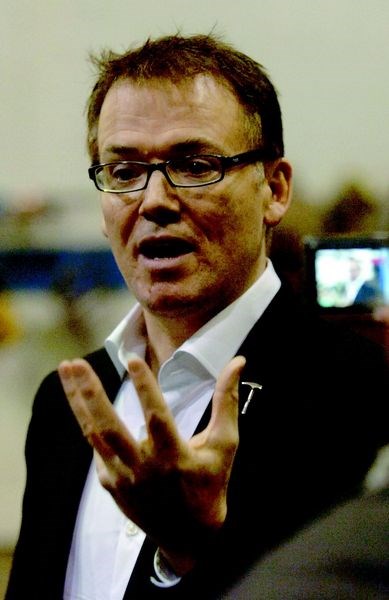B.C. Liberal leadership candidate Kevin Falcon's call for a merit-based pay system in the province's public schools is getting short-shrift from Prince George and District Teachers Association vice president Matt Pearce.
"It's a very destructive idea," Pearce said Tuesday.
It would turn teaching from a co-operative venture into a competitive one, in Pearce's view.
"It takes not only an entire staff in a school but my success as a teacher in a secondary classroom largely depends on what the nine teachers who came before me in elementary school did with those kids, as well as the parents," he said.
Falcon said he would push for a merit-based pay system if he becomes premier after the party's Feb. 26 leadership vote.
"I want to see good teachers rewarded," Falcon said in an interview, vowing that education reform would be at the top of his agenda.
"When you look at education... it is not how great your physical facilities are, it's not how fantastic the technology in the classroom is. It is actually the teacher at the front of the classroom that is the best determinant of student outcomes."
Pearce maintains the idea has failed in virtually every jurisdiction it's been instituted.
"It really shows what little Kevin Falcon knows about education," he said.
U.S. president Barack Obama has offered up billions of dollars for education reform that includes merit pay for teachers who improve student scores, the results of such experiments have been mixed. Some pilot projects have shown students do better when their teachers are offered incentives.
But a recent study by Vanderbilt University in Nashville, Tenn., showed the promise of merit pay alone does not increase test scores.
That's because merit pay is too one-dimensional a solution to have an effect on student performance, said Susan Moore Johnson, a professor at Harvard University's Graduate School of Education and a merit pay researcher.
"It's an odd thing, because individual merit pay comes up with political campaigns. It seems so simple and gets a lot of play," Johnson said.
But, he said, when teachers don't succeed, "it's for a lot of complex reasons - the most important being that they probably don't know how to do any better than they're doing."
Pearce said a process is in place to evaluate teachers but because administrators are so stretched, reviews not conducted as often as they should be even when teachers request them.
"Teachers really want the feedback," he said. "Teaching, in some ways, is kind of a lonely profession, you're in a classroom, you don't have another set of eyes looking at it from a different perspective.
"And teachers really appreciate having someone else come in who knows what they're doing and look at things from a different viewpoint, give the feedback on how you might improve your practice."
- with files from Canadian Press



